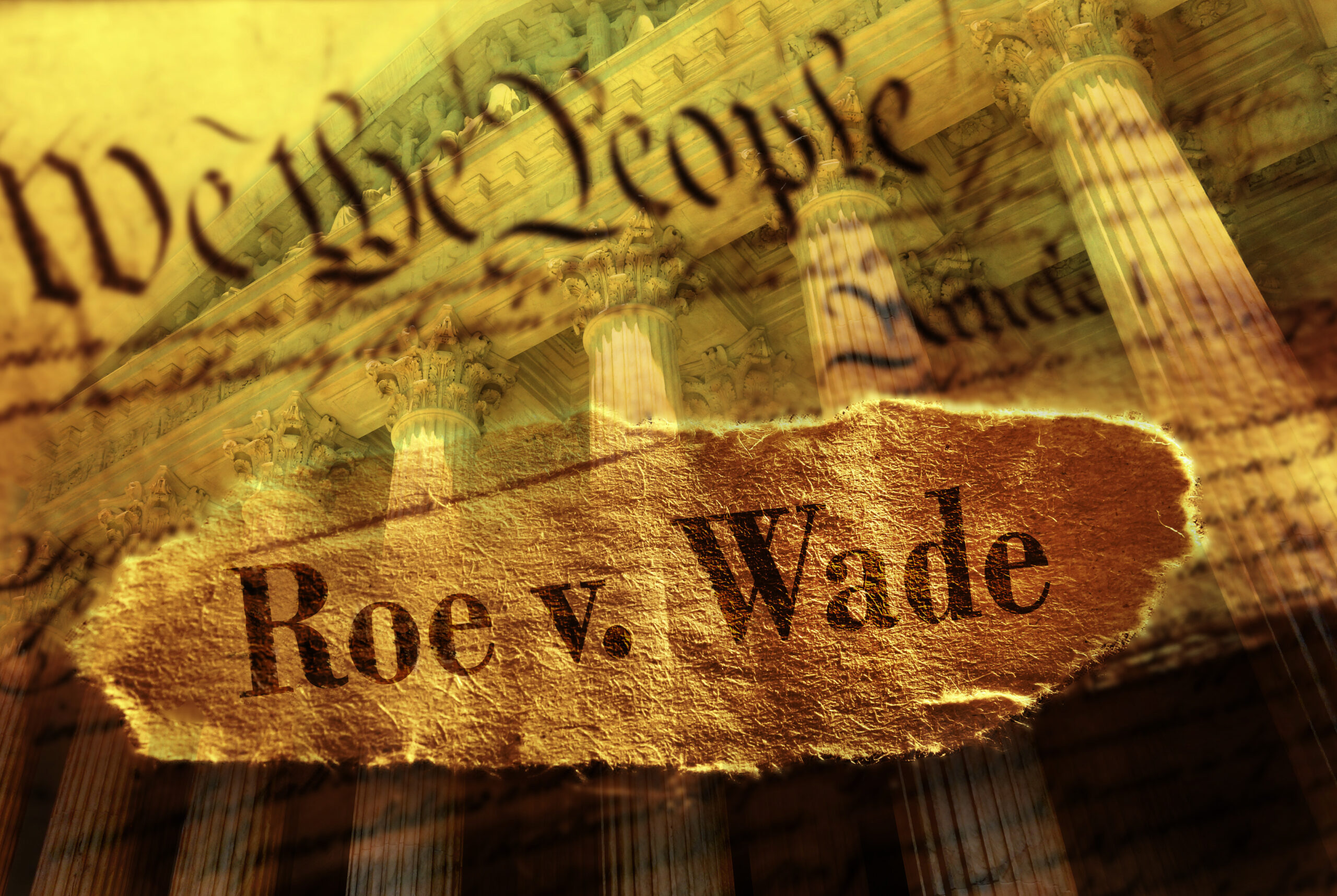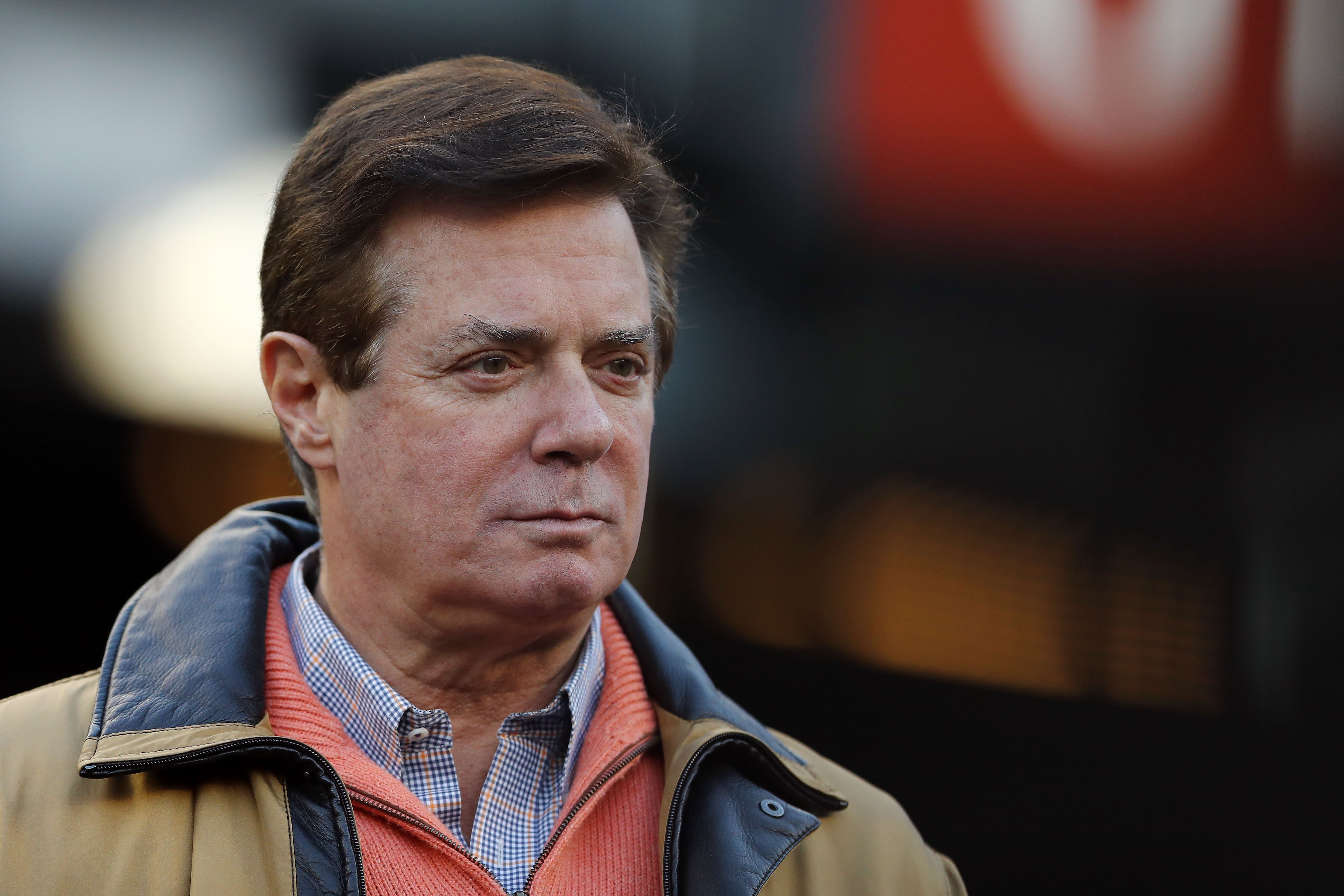
Red States Aren’t Going To Be Satisfied With Overturning Roe. Next Up: Travel Bans.
There's so much more awful.

There's so much more awful.

* Prosecution rests in Paul Manafort trial after deciding the jury didn't even need to hear about the Fabregé egg bedazzled White Rhino skin robe. [WSJ] * Now we enter the ridiculous world of musing about whether or not it was legal for Omarosa to tape her own firing. Which was held in the Situation Room. Which doesn't sound like a clumsy setup at all. [The Guardian] * "Will AI-Powered Law Enfrocement Force Us To Rewrite Our Laws?" Well, decades of empirical evidence of limited efficacy and systemic discriminatory application haven't done it, so why would AI? [Forbes] * Law firm figures out how to make Trump's tax laws work for them proving once again that if you set your mind to it, anyone can outsmart this administration. [American Lawyer] * The ban-the-box movement to keep employers from amplifying the debilitating effects of the criminal justice system by effectively barring ex-convicts from reentering the workforce, has now taken hold in 31 states. [Corporate Counsel] * It's telling that "Trump cabinet official accused of violating ethics rules is so passé it's below the fold. [CNN] * Hawaii has dropped its fight over the Trump Muslim Ban after the Supreme Court handed down its persuasive "there are 5 of us and only 4 of you" ruling. [US News]

Its new features transform how you can track and analyze the more than 200,000 bills, regulations, and other measures set to be introduced this year.

By upholding the travel ban the Court affirms that bigotry is still legal in America, just as it's always been.

* The Supreme Court is set to rule on six more cases this week, and one of them is President Trump's Muslim travel ban. Stay tuned, because we could find out a decision on this one later this morning. [Reuters] * President Trump has called for the immediate deportation of undocumented immigrants with "no judges or court cases." Adios to due process, which was pretty cool while it lasted. [The Hill] * Speaking of undocumented immigrants, Lawyers for Good Government has launched Project Corazon, a program led by Kirkland & Ellis, where attorneys will help reunite families that were separated at the border under President Trump's "zero tolerance" policy. [ABA Journal] * Valparaiso Law might not be going anywhere after all. As it turns out, Middle Tennessee State University is in talks to inherit the struggling law school program. MTSU isn't buying the school or merging with it -- no, this is going to be considered a "gift." Mmmhmmm. [Chicago Tribune] * Coming to a law firm near you is the Mansfield Rule 2.0, which aims to close the gap in leadership roles for LGTBQ+ attorneys in Biglaw. Fifty firms signed up for the original Mansfield Rule to promote the success of women, and 35 of those firms plus 11 new ones have joined to support LGTBQ+ attorneys. [American Lawyer]

The Solicitor General doesn't seem to know much about the world.

Travel ban oral arguments did not go well for people of decency, but I still have hope.

Our expert panel explores common sources of profit leakage along with practical steps for improvement.

* The Supreme Court will hear oral arguments today on the Trump travel ban case. What's at stake here, aside from the high court potentially allowing the travel ban to become permanent? The legacy of the Roberts Court also hangs in the balance. A decision upholding the ban could very well be the next Dred Scott, Plessy, or Korematsu, and forever marring this Court's record. [Take Care] * Is AG Jeff Sessions recusing himself from the investigation into Michael Cohen, or isn't he? According to the DOJ, Sessions isn't involved in any investigations "related in any way to the campaigns for president," but according to news sources, he hasn't decided to recuse himself from the Cohen probe quite yet. [Politico; Bloomberg] * Judge John Bates of the District of Columbia has ruled that the Trump administration's decision to end the DACA program was "arbitrary and capricious" and "virtually unexplained," and therefore "unlawful." Judge Bates ordered that the government must not only continue DACA, but accept new applicants. He stayed his ruling for 90 days to give DHS a chance to explain itself. [Washington Post] * Kyle Duncan, President Trump's fifteenth federal appeals court nominee who's known for litigating disputes involving voter ID requirements, same-sex marriage bans, transgender bathroom access, and the Affordable Care Act's contraceptive mandate, was very narrowly confirmed to the Fifth Circuit. [Big Law Business] * According to the Harvard Law Women's Law Association, there's a glass ceiling at the school. The faculty is "overwhelmingly male," and the administration is "turning a blind eye" to the success of women once they're enrolled. Something has to change so women can achieve as much success as their male classmates. [Harvard Law Record]

We talked to Josh Geltzer about a case that people have seemed to have forgotten about.

Ed. note: We will not be publishing on Monday, February 19, in observance of President's Day. * Congratulations to my friend and former co-clerk, John Demers, on his long-overdue confirmation as head of the Justice Department's National Security Division. [Reuters] * Which lawyers and justices take the lead on the most important Supreme Court cases? Adam Feldman has the answers, as always. [Empirical SCOTUS] * Professor Ilya Somin breaks down the recent Fourth Circuit ruling on Trump's Travel Ban 3.0. [Volokh Conspiracy / Reason] * A leading legal technology company, Kira Systems, is looking for a few good law librarians (to apply for its new job as a Machine Learning Knowledge Analyst). [Dewey B Strategic] * Lawyer and activist Glenn Magpantay, executive director of the National Queer Asian Pacific Islander Alliance (NQAPIA), explains what's at stake with the Dream Act. [Advocate] * Stroock's Joel Cohen draws lessons for lawyers from the buzz-generating new movie, The Post. [New York Law Journal] * What role can expert witnesses play in #MeToo litigation? Lawyer Kat Hatziavramidis shares some insights. [Forensis Group] * The Mrs. Palsgraf of the United Kingdom -- a famous torts plaintiff named May Donoghue, who sued a beverage manufacturer after she discovered a decomposing snail in a bottle of ginger beer -- is getting a statue erected in her honor. [Legal Cheek] * Not as bad as sexually assaulting a student intern, but another Biglaw partner stands accused of making degrading, sexually charged comments to a junior attorney. [RollOnFriday] * In advance of its Global Legal Hackathon (February 23-25), the Global Legal Blockchain Consortium welcomes a new member: Fasken, a leading Canadian law firm. [Artificial Lawyer]

The Chief Judge also noted, 'When we compromise our values as to some, we shake the foundation as to all.'

Operate with AI driven insights, legal intake, unified content and modular scalability to transform efficiency and clarity.

Supreme Court grants cert in Travel Ban 3.0 case.

The ruling is on 'hold,' but if SCOTUS wants to knock down the Travel Ban, the Ninth showed them how.

The work of these lawyers will remain ingrained in our country’s conscience for quite some time.

Court votes 7-2 to authorize discrimination while lower courts continue to review the case.

People are recognizing that lawyers are the first responders to the Trump crisis.